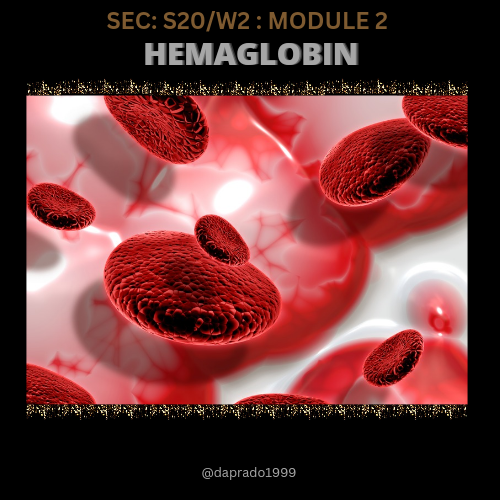SEC S20W2 || Hemoglobin - Module 2
 |
|---|
Hello friends, I welcome you all to my article, in the SEC S20/W2 in this great community. I would be putting in my best to bring out my best in the challenge. Here are my thoughts immediately.
Rafael Rangel of blessed memories was a Venezuelan by birth and nationality, a greatly known scientist. He was popularly known as a microbiologist who was famous for his contribution in the sub genre parasitology and he focused on treating pathologies and diseases.
Moreso, he was so passionate about parasitology which made him study hookworms and their special effects on the populace in Venezuela. This singular act to his people made him indeed very popular. He spread out through the medical field conducting research and finding approaches towards finding treatment and basic preventive measures to combat parasitic diseases.
Importantly, he was born in 1877 and died on 20 August 1909 at the age of 32 of suicide. A complicated death fo such a great legend. Not withstanding, his paper work, research and famous contribution to science still lives on in Venezuela and beyond too. He cannot be forgotten in our dear history books.
Hemoglobin is basically a molecule, red pigmented which carries oxygen from the lungs to other tissues. In other words, it moves oxygen from the afferent to the effector areas and vise versa. It also transfers used up carbon dioxide from tissues to lungs and the cycle continues. The hemoglobin affinity for these gases is dependent on other factors too.
Furthermore, the body temperature, pH are parameters which must be put in place to ensure the overall activity of the hemoglobin. It has an inverse proportion to these special factors. In other words when the temperature in the body is increased a decrease in oxygen and vice versa. Decrease in pH causes an increase in body affinity for oxygen.
Structural Composition
Each component of hemoglobin has
- Globin chain
- HEMO Group
The hemoglobin has a paired alpha chain and also a paired beta chain which is structurally sutured to the HEMO group. Thus a hemoglobin comprises of a HEMO group surrounded with globin chains, protoporphyrin IX and ferrous iron. The ferrous iron serves as a transport mechanism it serves a purpose to avoid the hemoglobin molecule from dissolving. It is insoluble and cannot be dissolved in the blood stream during transit, this makes it get round the body effectively.
Hematocrit basically means the determination of the amount of red blood cells percentage in a blood sample. The analogy used in the lecture makes it relatable and I appreciate the lesson. The percentage of red blood cells is determined by the hematocrit tes analysis. There are two ways to this approach.
Automated Hematocrit
This involves a machine quantifier which immediately quantifies the red blood cells in a blood sample. It goes through a separation technique process called scintillation through a laminar chamber where it emerges into an electronic impedance to show size and quantity of red blood cells. It is faster and occurs in a shorter period in relation to the process in the Manual Hematocrit
Manual Hematocrit
This involves a capillary with a plasticine seal containing heparin sent through a centrifuge. The separation technique of centrifugation is observed for about a couple of minutes and it emphatically shows a hematocrit percentage value for the contents in the blood sample. It is great edge over the automated hematocrit process due to the presence of plasma sequestration which is not available in automated hematocrit.
A class of students all packed together about 100 students, a test is said to be conducted to separate the boys from the girls. All the girls are meant to be on braided hair as it's the ruke o the school. A test is conducted to separate the girls from the class sample. A concept of Hematocrit is conducted to separate the girls while calculating the percentage of the girls to the total number of students using the data received.
The same concept is used over a populace of 200 people to separate the light skinned from the dark skinned people. After the are sorted out though hand picking, from the data received a percentage of the light skinned to the dark skinned in the sample populace is calculated and that best explains the process of hematocrit using the example.
Im really glad you stopped by my article, it is indeed a motivation to me to work harder and smarter too. I would put in more efforts subsequently to make out more great articles
Kudos to you for such an excellent and deeply researched post. Your information about hemoglobin is new and valuable to me. Good luck for the contest.
Your kind words are highly esteemed, I'm most grateful to you for sharing your kind thoughts on my article my dear friend.
He was a great scientist, too bad he died at a very young age. His contribution will always be remembered. May he rest in peace.